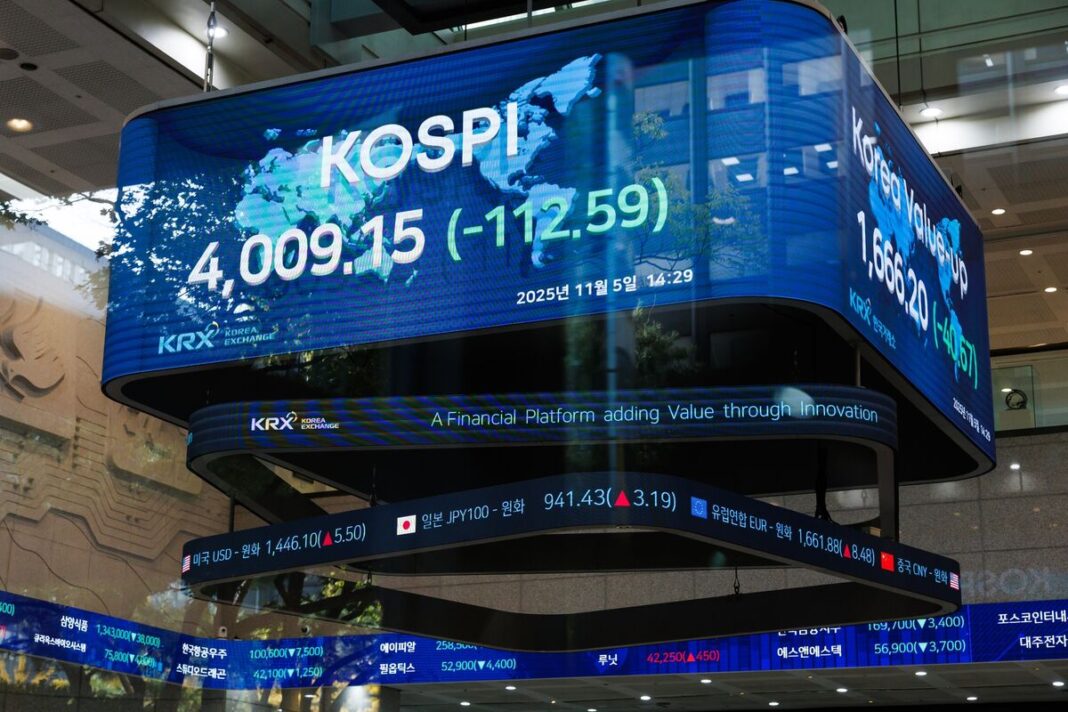Surge in Bets on South Korean Stock Market: A Closer Look
The Context of South Korea’s Stock Market Rally
In recent months, South Korea’s stock market has captured the attention of investors worldwide, emerging as one of the top performers in 2023. The Korea Composite Stock Price Index (KOSPI) has shown a remarkable upward trajectory, buoyed by strong corporate earnings, a resilient economy, and favorable government policies. This rally, however, has sparked an increase in speculative bets, raising eyebrows among seasoned investors and market analysts alike.
Understanding the Surge in Speculation
With the stock market’s impressive performance, many traders are increasingly betting on the momentum continuing. Speculation usually surges when investors believe that a market is on the precipice of further gains. In South Korea’s case, the combination of pent-up demand following the pandemic, robust technological advancements, and foreign investments has created an atmosphere ripe for speculation. Traders are not only capitalizing on existing assets, but they are also exploring leveraged positions to maximize their potential profits.
Factors Driving the Rally
Several key factors contribute to this ongoing rally. The South Korean government has implemented policies aimed at stimulating economic growth, including incentives for technology sectors and exports. The country’s strong manufacturing base, particularly in tech and automotive industries, has seen a significant boost.
Moreover, international investors have increased their interest in South Korean equities. With a shift in focus from Western markets to emerging economies, South Korea offers a blend of stability and growth potential that is hard to ignore. The nation’s strategic geographical location in Asia further enhances its attractiveness, as it acts as a gateway to both Chinese and Southeast Asian markets.
Risks of Increased Speculation
While the surge in bets can be exhilarating, it inherently comes with its set of risks. Many analysts caution that this speculative behavior may lead to increased market volatility. A rapid inflow of speculative investments can distort stock prices, detaching them from their fundamental values. If the market corrects, those leveraged positions could exacerbate losses, impacting not just individual investors but also the broader economy.
Furthermore, excessive speculation can lead to bubbles in specific sectors. For instance, stocks in the technology domain could see inflated valuations if driven solely by market euphoria rather than underlying business performance. Many seasoned investors advise caution and a return to fundamental analysis rather than relying solely on market trends.
The Role of Retail Investors
A notable aspect of the current surge is the active participation of retail investors. Thanks to technological advancements and the rise of trading platforms, more individuals are entering the market, armed with limited experience but high enthusiasm. These retail traders often engage in herd behavior, driven by social media trends or peer performance, which can amplify both upward and downward market moves.
This group’s significant presence adds a layer of complexity to market dynamics. While their participation can inject liquidity into the market, it can also lead to erratic trends and heightened volatility, especially during downturns. Retail investors must be equipped with proper knowledge and tools to navigate these choppy waters effectively.
Foreign Influence in the Market
The role of foreign investments cannot be understated in the context of South Korea’s market rally. International funds have invested heavily, drawn by the promise of higher returns compared to more mature markets. This influx has not only bolstered stock prices but also enhanced the KOSPI’s global standing.
However, this reliance on foreign capital introduces a new layer of risk. Changes in global economic sentiments or shifts in monetary policy in major economies can trigger capital outflows, leading to sudden market corrections. South Korea’s economy, while robust, is susceptible to external shocks, and this interconnectedness underscores the importance of maintaining a balanced investment strategy.
The Outlook Ahead
As the South Korean stock market heats up, eyes are on its sustainability. Investors are faced with the challenge of balancing their portfolios amidst a landscape that combines potential with pitfalls. Continued monitoring of economic indicators, global market conditions, and corporate earnings will be crucial as traders navigate this complex terrain.
In summary, while the enthusiasm around South Korea’s stock market is palpable, the undercurrents of speculation warrant caution. Investors must remain vigilant, grounded in sound practices, and be mindful of both the opportunities and risks that come with this remarkable rally.



